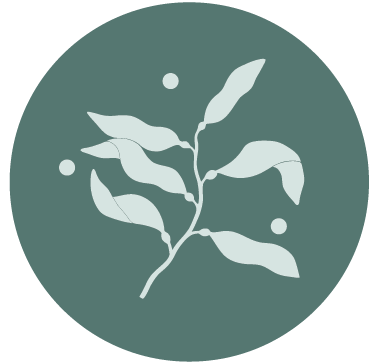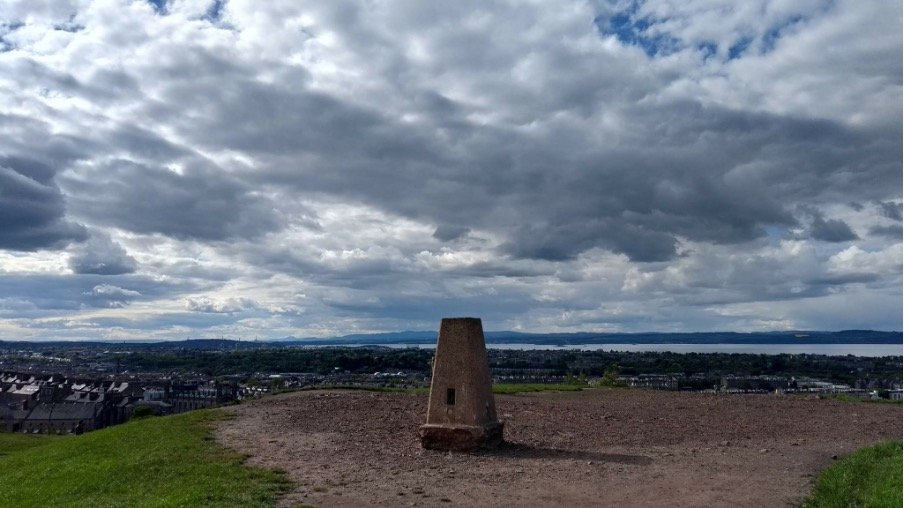PHOTO: SUKHADA TATKE
Time Trails
Edinburgh, September 2022
Ranjit Hoskote [RH] and Sukhada Tatke [ST]
1. Water of Leith
[ST]
Have you heard the river? Listened to the stories she tells you when you place your ear to the bank, your whole body? Once you get past the murmur, the susurrus, the dog bark, the wicked laugh of the gull, the creepy-crawly up your bare leg, the din overhead, the child bounding after his dog friend; you shut out the world, and a riverine voice speaks to you. I was here, it says, here long before your body or mind took shape, long before the first among you was formed. In this moment of union, a shudder rises in your head – the source of all that you thought you knew – and cruises through your torso, the length of your spine, meandering down your arms, bending around your legs, your feet and toenails, scorching your every pore; and your mouth searches for the sea. Not a sound is heard.
Many eras later, members of an intelligent species will, while strolling along these banks, stumble upon some clumsy remains, indistinguishable from earth. They will regard this curled-up portrait of surrender – forehead on the ground, legs folded under the body, arms hugging the chest, rump raised skywards – with curiosity. Look, they will say, pointing at the relic, a petrified human.
[RH]
To stand on this bridge with you, looking out over the river purling below us: rich and strange in its rippling presence, though I know the pour and gurgle of its onrush so well already from your stories. To gaze up at the trees reaching heavenward like annunciations scripted in an extinct language. We hear a woman call after her runaway dog, distraught primate sprinting after excitable canine through the shrubbery. The dog is already passing into dream, into phantasm, into story. We look down: the water is running low, lifting the rocks on the riverbed to view. Born in volcanic fire, these rocks have slept underwater for centuries. Now they look like seals, basking in the late summer sunlight. We touch them, trace the lines incised into their surfaces by geological action, time, weather. They are the red of dried blood and shadowed leaves. They would speak to us, if they could.
What does it mean to find speech? Or for speech to find you?
Subscribe to Portside Review
to read the full story.
Ranjit Hoskote is a poet, translator, essayist, and curator based in Bombay, India. He is the author of numerous collections of poetry, including, most recently, Jonahwhale (Penguin/Hamish Hamilton, 2018; in the UK as The Atlas of Lost Beliefs, Arc, 2020) and Hunchprose (Penguin/Hamish Hamilton, 2021). His next collection, Icelight, is due out from Wesleyan University Press in spring 2023. His translation of a celebrated 14th-century woman mystic’s work has appeared as I, Lalla: The Poems of Lal Ded (Penguin Classics, 2011). Hoskote curated India’s first-ever national pavilion at the Venice Biennale (2011) and was co-curator of the 7th Gwangju Biennale, South Korea.
Photo credit: Priyesha Nair
Sukhada Tatke is an Indian writer and reporter based in Edinburgh. Her essays and features have appeared in The Rumpus, Al Jazeera, Wired and India Quarterly. She writes on books, culture, religion, gender, history and so on.
Sukhada’s favourite sea creature
My favourite sea creature is a unicellular organism that you cannot see with the naked eye – the bioluminescent dinoflagellate of the plankton community. When disturbed, a cluster of dinoflagellates lights up the surface of the ocean at night – a single tremor leading to a most magical blue-green glow.




